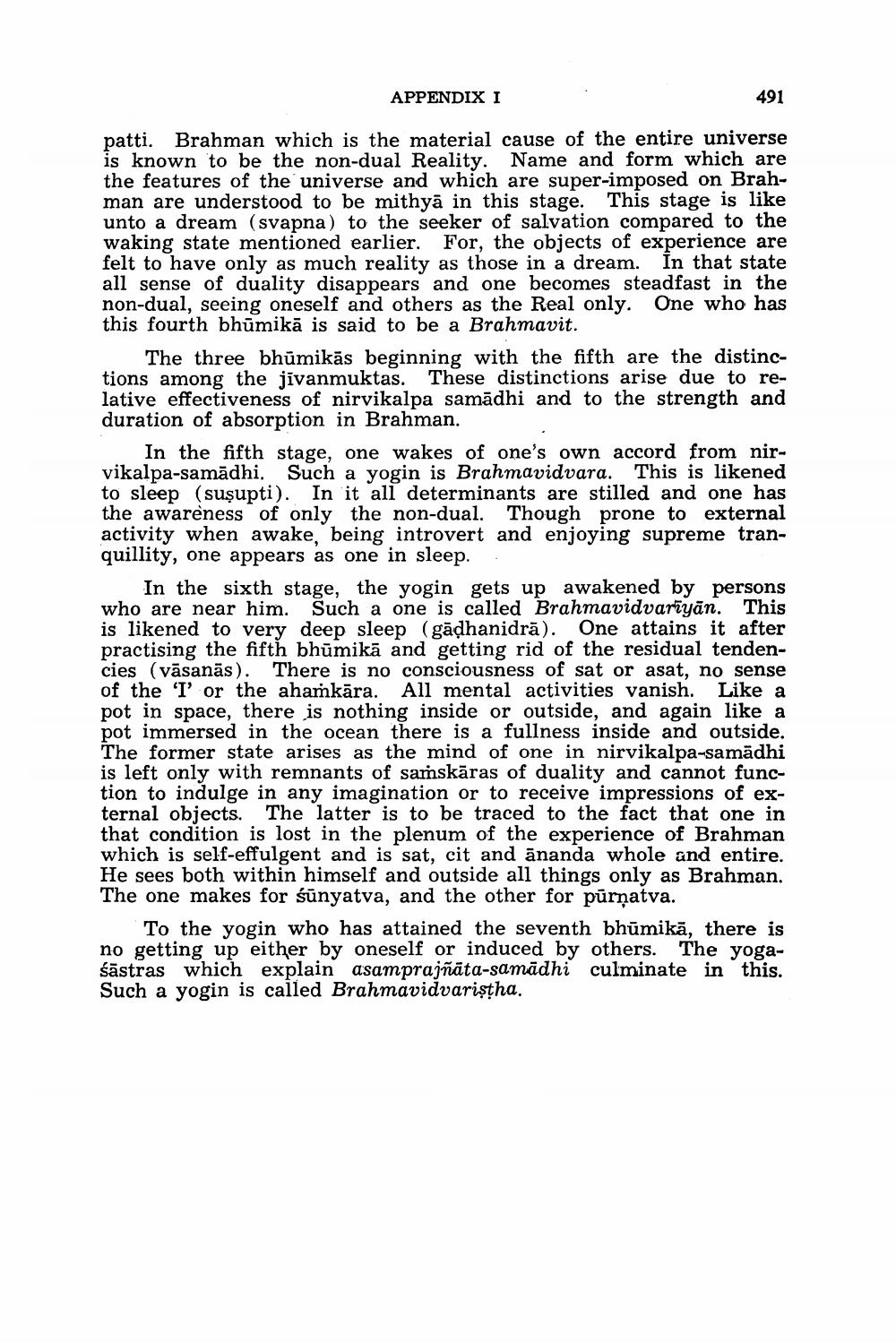________________
APPENDIX I
491
patti. Brahman which is the material cause of the entire universe is known to be the non-dual Reality. Name and form which are the features of the universe and which are super-imposed on Brahman are understood to be mithyā in this stage. This stage is like unto a dream (svapna) to the seeker of salvation compared to the waking state mentioned earlier. For, the objects of experience are felt to have only as much reality as those in a dream. In that state all sense of duality disappears and one becomes steadfast in the non-dual, seeing oneself and others as the Real only. One who has this fourth bhūmikā is said to be a Brahmavit.
The three bhūmikās beginning with the fifth are the distinctions among the jivanmuktas. These distinctions arise due to relative effectiveness of nirvikalpa samādhi and to the strength and duration of absorption in Brahman.
In the fifth stage, one wakes of one's own accord from nirvikalpa-samadhi. Such a yogin is Brahmavidvara. This is likened to sleep (suşupti). In it all determinants are stilled and one has the awareness of only the non-dual. Though prone to external activity when awake, being introvert and enjoying supreme tranquillity, one appears as one in sleep.
In the sixth stage, the yogin gets up awakened by persons who are near him. Such a one is called Brahmavidvarīyān. This is likened to very deep sleep (gādhanidrā). One attains it after practising the fifth bhūmikā and getting rid of the residual tendencies (vāsanās). There is no consciousness of sat or asat, no sense of the 'I' or the ahamkāra. All mental activities vanish. Like a pot in space, there is nothing inside or outside, and again like a pot immersed in the ocean there is a fullness inside and outside. The former state arises as the mind of one in nirvikalpa-samādhi is left only with remnants of sarskāras of duality and cannot function to indulge in any imagination or to receive impressions of external objects. The latter is to be traced to the fact that one in that condition is lost in the plenum of the experience of Brahman which is self-effulgent and is sat, cit and ānanda whole and entire. He sees both within himself and outside all things only as Brahman. The one makes for sūnyatva, and the other for pūrņatva.
To the yogin who has attained the seventh bhūmikā, there is no getting up either by oneself or induced by others. The yogaśāstras which explain asamprajñāta-samadhi culminate in this. Such a yogin is called Brahmavidvariștha.




